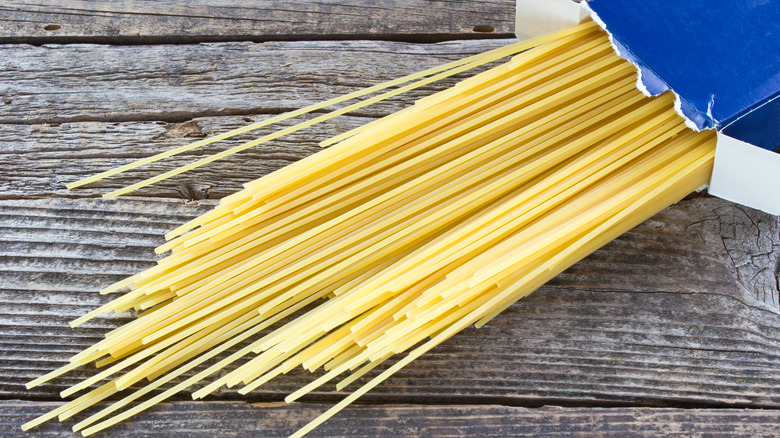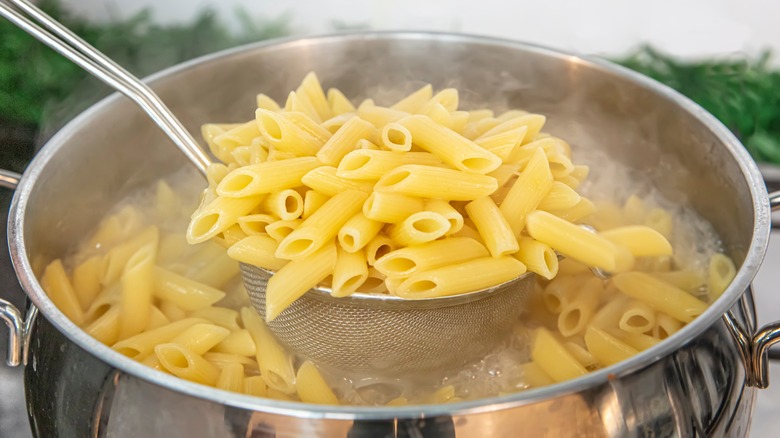Why You Shouldn't Strictly Follow The Cooking Time On Boxed Pasta
Pasta is a staple in a majority of American households. Whether you are feeling a little fusilli with zucchini and goat cheese, enjoying a classic lasagna Bolognese or one-pot Spanish pasta, pasta is a convenient, delicious, and satisfying meal. Per Statista, 55% of people in the United States confessed they eat this carbohydrate-rich food regularly. Of course, Italians eat more than Americans, with 81% of people in Italy eating pasta on a daily basis. But regardless of how often you serve up this favorite ingredient, there's more than one way to cook it.
After testing five different methods for cooking pasta, Kitchn applauded Alton Brown's method of starting with your pasta poured into a pot of cold water and bringing it to a boil. But many people are still tied to the conventional manner of cooking pasta, which calls for bringing a large pot of water, usually salted, to a boil and then adding the pasta to the boiling water for whatever amount of time is suggested on the box.
However, if you follow this way of making pasta, experts say, you may want to reconsider strictly following the cook time listed.
There are several factors at play
According to the experts at Whole Foods Market, those times are more of a guide than a hard and fast rule. The food market goes on to share that how quickly a pasta cooks is dependent on several factors, which means you actually need to taste the pasta as it cooks. To tell if your pasta is done, Whole Foods Market says you do not want your pasta to "stick to your teeth while chewing." This is a tell-tale sign it needs more time in the water.
A retired chemistry professor from Acadia University said on the Socratic forum that the density of pasta can also impact its cook time. This makes a lot of sense when you consider the cook time of spaghetti, which What's for Dinner classifies as a medium density pasta, and that of vermicelli pasta, which is thinner and delicate. AllRecipes explains vermicelli takes 2 to 3 minutes to cook. Comparatively, BBC Good Food notes spaghetti takes between 8 and 10 minutes to cook, while shorter, thicker, and denser pasta takes between 10 and 12 minutes.
For perfectly cooked pasta, The Oklahoman explains you want your pasta to be "al dente." It needs to be both "chewy" and thoroughly cooked. But both The Oklahoman and Whole Foods Market caution that you should resist throwing it against the wall or an appliance to see if it will stick because both undercooked and overcooked pasta can stick.

